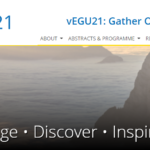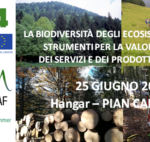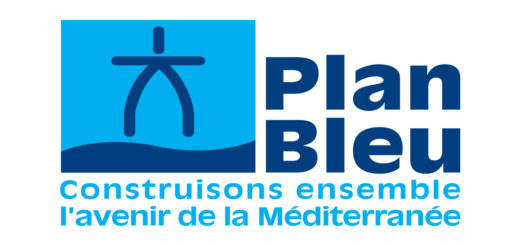Vacancy for 2 PhDs and 1 Postdoc at Ghent University (Belgium)
Development trajectories of temperate forest plant communities under global change: combining hindsight and forecasting (PASTFORWARD)
The last decades are characterized by an upsurge of research on the impacts of global environmental changes on forests. Climate warming, atmospheric deposition of acidifying and eutrophying pollutants and land-use change are three of the most important threats to biodiversity in temperate forests. However, most studies focused on the effects of single factors over short time periods, such that our ability to predict the combined effects of multiple global change drivers over longer time periods remains rudimentary. The lack of knowledge on effects of global change drivers on forest herb layer communities is particularly striking, since the herb layer contains the largest part of vascular plant diversity in temperate forests and provides key ecosystem services. Therefore PASTFORWARD will build an integrative understanding of the interactive effects of land-use change, atmospheric deposition and climate warming on forest herb layer communities, starting from the insight that changes in herb layer communities are driven primarily by past land use, but can be modulated by atmospheric deposition, climate warming and forest management. Indeed, it is still largely ignored that sensible predictions of herb layer development trajectories under global change can only be made by taking the forest’s land-use history into account, as legacies of past land use can leave century-long imprints on forest herb layer communities. Three complementary data sources (a database with resurveyed vegetation plots, field measurements in a pan-European network of resurvey plots, and a multi-factor experiment) combined with an ecosystem model will be used. Furthermore, concepts and tools from different disciplines, ranging from history over sylviculture to community and ecosystem ecology will be applied. The results of PASTFORWARD will help forest managers and policy makers in taking more informed decisions on how to combine resource extraction with biodiversity conservation.
Research Environment:
The ERC Consolidator Grant-project will start in June 2014 and will last five years (2014-2019). The PASTFORWARD-team will consist of one Principal Investigator (Prof. Dr. ir. Kris Verheyen), one postdoc, three PhDs and two technicians. Two PhD-projects and the post-doc position will start in 2014, the third PhD-project will start in 2015.
All the team members will be based at the Forest & Nature Lab of Ghent University (Belgium). The Forest & Nature Lab (ForNaLab) consists of 25 staff members and is headed by Prof. Kris Verheyen. This research group is part of the Department of Forest and Water Management at the Faculty of Bioscience Engineering. ForNaLab’s research mission is to perform hypothesis driven research on the mutual interactions between (forest) ecosystem composition and (forest) ecosystem processes, with a clear link to policy and management. ForNaLab is actively involved in numerous national and international projects and networks, including FLEUR, forestREplot, TreeDivNet, FunDivEUROPE and smallFOREST.
Description of the positions and profile of the candidates:
PASTFORWARD consists of four tightly linked work packages (WPs). WPs 1-3 use three complementary data sources (a unique database with resurveyed vegetation plots, field measurements in a pan-European network of resurvey plots, and an innovative multi-factor experiment). The overarching WP 4 will combine the data and outcomes of WP 1-3 to calibrate and validate a mechanistic model that allows predicting trajectories of forest herb community development under different scenarios of global change.
PhD1 will mainly work with a very large database of resurveyed vegetation plots. He/she will expand the existing database of herb layer resurvey data, thereby focusing on the extension of the land use, atmospheric deposition and climate gradients covered. Furthermore, he/she will supplement the database with as detailed information as possible on the land-use history and environmental characteristics of the plots included and with relevant functional trait data of the species involved.
PhD 2 will make resurveys in a subset of plots (~200) from the resurvey database throughout Europe. He/she will relocate and establish the plots in the field and will do a range of field measurements (understory vegetation, soil, tree and shrub layer), to quantify the present and past biotic and abiotic characteristics in the plots. Additionally the land-use history of the plots will have to be characterized in detail.
Postdoc: he/she will (1) adapt an existing mechanistic forest ecosystem model (e.g. ForSAFE-VEG or a similar type of model), (2) calibrate and validate the adapted model with the data gathered in the other WPs, (3) and will run scenario analyses, focusing on effects of forest management actions on herb layer development trajectories. Besides, the postdoc will be involved in other synthesis work and will help with the project management of PASTFORWARD.
Profile of the PhD candidates:
- You have a Master degree in Bioscience Engineering, Biology, Ecology or an equivalent degree in life sciences with a solid background in ecology (also students that will obtain their MSc degree by July ’14 are invited to apply);
- You have excellent study grades;
- You are an enthusiastic and highly motivated student with a strong interest in forest ecology and global change biology;
- You are highly motivated to work in a collaborative project with other PhD students, postdocs and technical assistants;
- You have good knowledge of, and preferentially experience with, handling large data sets and statistical analyses;
- You have good knowledge of both the biotic and abiotic components and processes in temperate forest ecosystems;
- You have a driving license (esp. important for PhD 2)
Our offer:
- We offer a Ph.D. scholarship for four years (full time, ca. € 1900 net per month);
- Tentative starting date is June 2014.
Profile of the postdoc candidate:
- You have a PhD in Bioscience Engineering, (Mathematical) Biology, (Mathematical) Ecology or an equivalent degree in life sciences with a solid background in ecology and modelling (also candidates that will obtain their PhD degree soon are invited to apply);
- You have a strong publication record, relevant for the subject of the project;
- You are an enthusiastic and highly motivated person with a strong interest and experience in ecosystem modelling;
- You are highly motivated to work in a collaborative project with other Phd students and technical assistants;
- You have good leadership capacities;
Our offer:
- We offer a postdoc position for five years (full time, ca. € 2300 net per month);
- Tentative starting date is June 2014.
Info Autori
Scuola di scienze Agrarie, Forestali, Alimentari e Ambientali (SAFE-UNIBAS)






